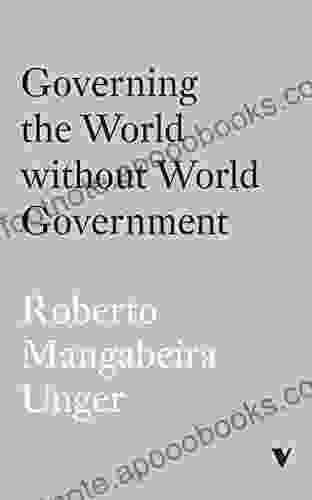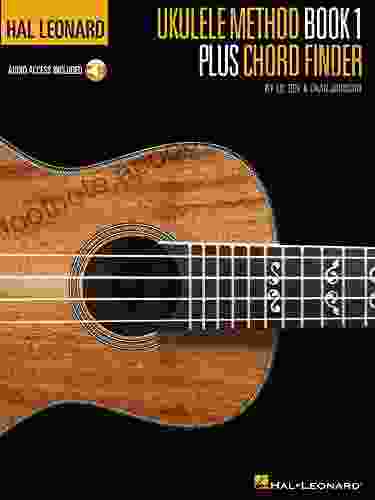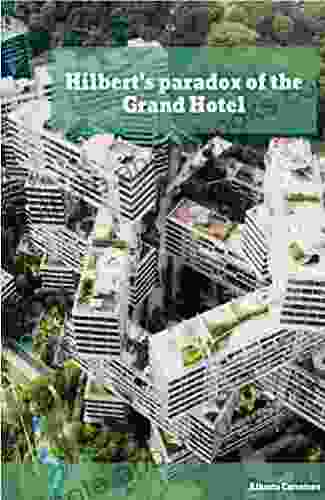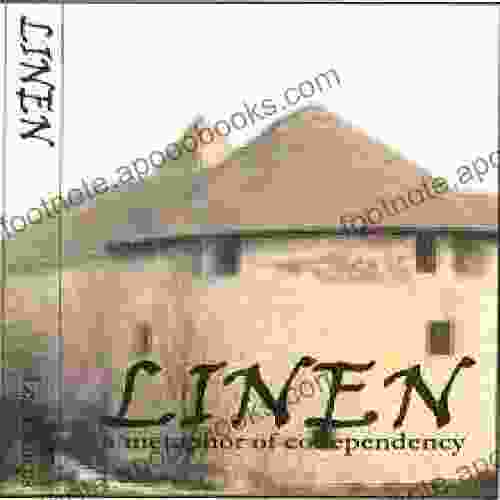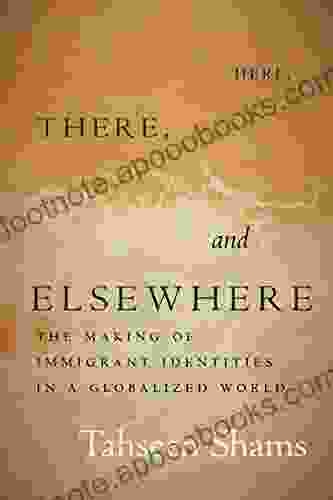Governing The World Without World Government

5 out of 5
| Language | : | English |
| File size | : | 1128 KB |
| Text-to-Speech | : | Enabled |
| Screen Reader | : | Supported |
| Print length | : | 616 pages |
| X-Ray for textbooks | : | Enabled |
In the 21st century, the world faces unprecedented challenges that transcend national bFree Downloads and require collective action. Climate change, economic inequality, terrorism, and the proliferation of nuclear weapons are just a few of the issues that demand global solutions. However, the world lacks a central authority with the power to enforce such solutions. Instead, we rely on a complex network of international institutions, agreements, and informal mechanisms to govern the global system.
This article explores the challenges and opportunities of governing the world without a world government. We will examine the existing mechanisms for global cooperation and discuss how they can be strengthened to meet the demands of the 21st century. We will also consider the potential role of new technologies, such as artificial intelligence, in enhancing global governance.
The Challenges of Global Governance
The absence of a world government presents several challenges for global cooperation. First, it can be difficult to achieve consensus on global issues, as different countries have different priorities and interests. Second, even when consensus is reached, it can be difficult to enforce agreements, as there is no central authority to ensure compliance. Third, the lack of a world government can make it difficult to hold global leaders accountable for their actions.
These challenges are compounded by the increasing complexity and interconnectedness of the global system. As the world becomes more interdependent, it становится труднее решать проблемы в изоляции. For example, climate change affects all countries, but no one country can solve the problem on its own.
The Opportunities of Global Cooperation
Despite the challenges, global cooperation is essential to address the challenges of the 21st century. The existing mechanisms for global cooperation, such as the United Nations, the G20, and the World Bank, provide a valuable forum for dialogue and negotiation. These institutions can help to build consensus on global issues, develop and implement solutions, and monitor progress.
In addition to formal institutions, there are also a number of informal mechanisms for global cooperation. These include networks of experts, civil society organizations, and business leaders. These networks can play a valuable role in generating ideas, building consensus, and holding leaders accountable.
The Role of New Technologies
New technologies, such as artificial intelligence, can also play a role in enhancing global governance. AI can be used to improve the efficiency and effectiveness of international institutions. For example, AI can be used to monitor compliance with agreements, identify trends, and predict future challenges.
AI can also be used to create new tools for global cooperation. For example, AI could be used to develop a global early warning system for pandemics or a platform for sharing data on climate change.
Governing the world without a world government is a complex challenge, but it is essential to address the challenges of the 21st century. The existing mechanisms for global cooperation provide a valuable foundation, but they need to be strengthened and supplemented by new technologies and approaches.
By working together, we can build a more just and sustainable world for all.
5 out of 5
| Language | : | English |
| File size | : | 1128 KB |
| Text-to-Speech | : | Enabled |
| Screen Reader | : | Supported |
| Print length | : | 616 pages |
| X-Ray for textbooks | : | Enabled |
Do you want to contribute by writing guest posts on this blog?
Please contact us and send us a resume of previous articles that you have written.
 Book
Book Novel
Novel Page
Page Chapter
Chapter Text
Text Story
Story Genre
Genre Reader
Reader Library
Library Paperback
Paperback E-book
E-book Magazine
Magazine Newspaper
Newspaper Paragraph
Paragraph Sentence
Sentence Bookmark
Bookmark Shelf
Shelf Glossary
Glossary Bibliography
Bibliography Foreword
Foreword Preface
Preface Synopsis
Synopsis Annotation
Annotation Footnote
Footnote Manuscript
Manuscript Scroll
Scroll Codex
Codex Tome
Tome Bestseller
Bestseller Classics
Classics Library card
Library card Narrative
Narrative Biography
Biography Autobiography
Autobiography Memoir
Memoir Reference
Reference Encyclopedia
Encyclopedia Cathryn Brown
Cathryn Brown Jonathan Lunn
Jonathan Lunn Charles Hood
Charles Hood Charles Veley
Charles Veley Graeme Simsion
Graeme Simsion Cassandra Ellis
Cassandra Ellis Thomas E Alexander
Thomas E Alexander Catherine Marshall
Catherine Marshall Casey Watkins
Casey Watkins Charles Brockden Brown
Charles Brockden Brown Frederick Rudolph
Frederick Rudolph Charlie Wilson
Charlie Wilson Karen Glass
Karen Glass Rock Thiz Magazine Staff
Rock Thiz Magazine Staff Rivita Goyle
Rivita Goyle Jim Wright
Jim Wright Tristan Jones
Tristan Jones Hourly History
Hourly History Dean Rinaldi
Dean Rinaldi Mark Pendergrast
Mark Pendergrast
Light bulbAdvertise smarter! Our strategic ad space ensures maximum exposure. Reserve your spot today!
 Roland HayesFollow ·13.3k
Roland HayesFollow ·13.3k Aubrey BlairFollow ·11.1k
Aubrey BlairFollow ·11.1k Michael SimmonsFollow ·6k
Michael SimmonsFollow ·6k Hugo CoxFollow ·12.4k
Hugo CoxFollow ·12.4k Tyrone PowellFollow ·7.5k
Tyrone PowellFollow ·7.5k Brody PowellFollow ·15.8k
Brody PowellFollow ·15.8k Darren NelsonFollow ·6.9k
Darren NelsonFollow ·6.9k Jeffery BellFollow ·8.3k
Jeffery BellFollow ·8.3k

 Angelo Ward
Angelo WardThe Original Home School: A Journey of Love, Learning,...
In the annals of...
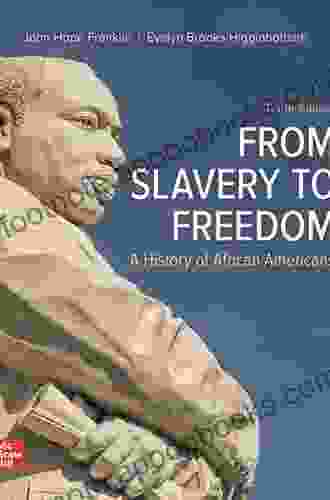
 Heath Powell
Heath PowellAfrican American Education in Slavery and Freedom: The...
The history of African...
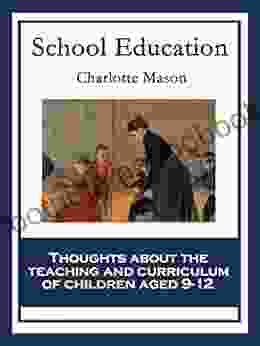
 Jamal Blair
Jamal BlairEmbrace the Wonder and Simplicity of Charlotte Mason...
Discover the...

 Cason Cox
Cason CoxUnveiling the Truth: A Mother's Courageous Journey to...
A Mother's Love Unbound: The Power of...

 Jamal Blair
Jamal BlairOver 100 Original Aussie Bush Ballads: A Journey Through...
Embark on a literary odyssey into the...
5 out of 5
| Language | : | English |
| File size | : | 1128 KB |
| Text-to-Speech | : | Enabled |
| Screen Reader | : | Supported |
| Print length | : | 616 pages |
| X-Ray for textbooks | : | Enabled |


